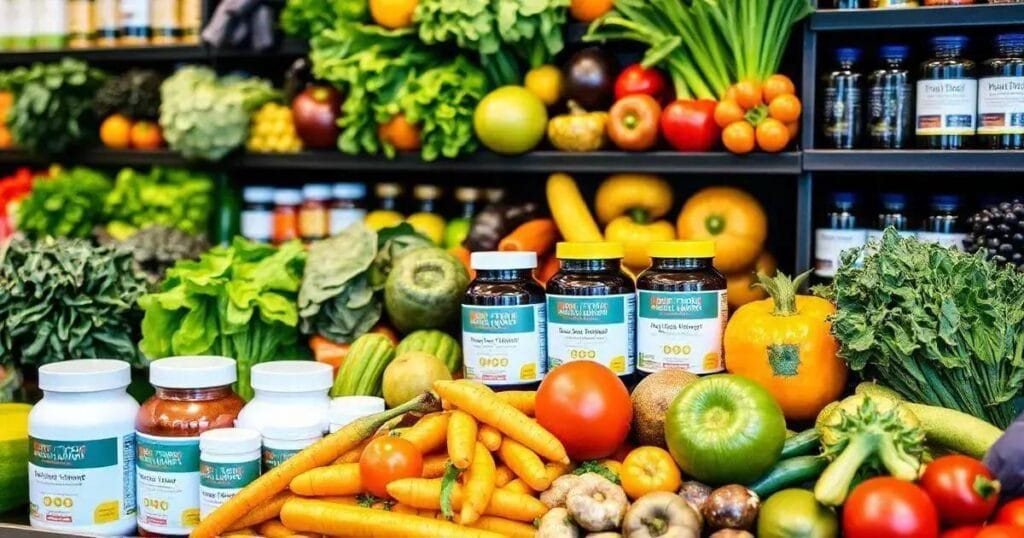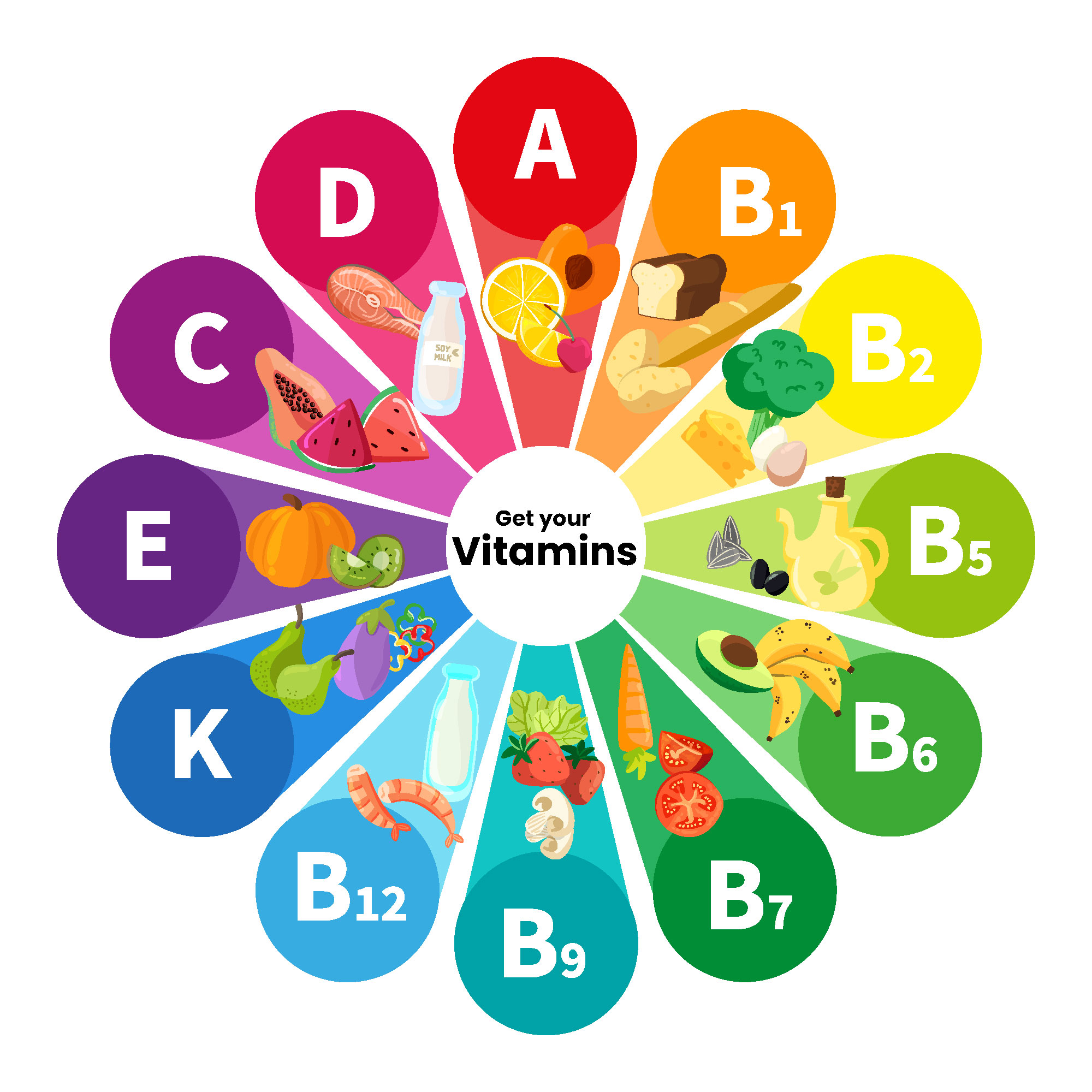Vitamins are vital for maintaining overall health and wellness. They assist in numerous bodily functions, including boosting the immune system and improving energy levels.
While many people focus on diet and exercise, understanding the importance of vitamins is crucial.
In this article, we will delve into the role of vitamins, their benefits, and how to effectively incorporate them into your daily routine.
Content
ToggleUnderstanding the Role of Vitamins in Health
Vitamins are essential nutrients that play a crucial role in maintaining our health. They enable numerous bodily functions, from supporting the immune system to promoting healthy skin.
Understanding the role of vitamins helps us appreciate how they contribute to our overall well-being.
Is it Important to Take Supplements with Food?
Taking vitamin supplements with food can enhance their absorption in the body. Some vitamins, particularly the fat-soluble ones such as A, D, E, and K, require dietary fat for optimal absorption.
When taken on an empty stomach, these vitamins may not be as effective.
The Different Types of Vitamins
There are two main types of vitamins: water-soluble and fat-soluble. Water-soluble vitamins, such as vitamin C and the B vitamins, dissolve in water and are excreted through urine.
On the other hand, fat-soluble vitamins are stored in body fat and can be absorbed more effectively when consumed with dietary fats.
Importance of Balance in Vitamin Intake
Each vitamin has specific functions and benefits that contribute to our health. For instance, vitamin C supports the immune system and aids in wound healing, while vitamin D is essential for bone health. Striking the right balance is key, as both deficiencies and excessive intakes can cause health issues.
Furthermore, understanding how to incorporate vitamins into our diet is vital.
A diet rich in fruits, vegetables, whole grains, and healthy fats typically provides the necessary vitamins our bodies need. If needed, consult a healthcare provider for personalized advice on supplements.
Essential Vitamins: Benefits and Sources
Essential vitamins are vital for our bodies to function properly. Each vitamin plays a unique role, providing various health benefits. Here are some key vitamins, their benefits, and the best sources to obtain them:
Vitamin A
Vitamin A is important for good vision, a healthy immune system, and skin health. You can find it in foods like carrots, sweet potatoes, and spinach.
Vitamin C
This vitamin helps with the growth and repair of tissues. It also strengthens the immune system. You can get vitamin C from citrus fruits, strawberries, and bell peppers.
Vitamin D
Vitamin D is essential for strong bones and teeth. It helps the body absorb calcium. The best sources of vitamin D are sunlight, fatty fish, and fortified dairy products.
Vitamin E
This vitamin is an antioxidant that helps protect your cells from damage. It supports immune function and skin health. You can find vitamin E in nuts, seeds, and leafy green vegetables.
Vitamin K
Vitamin K is crucial for blood clotting and bone health. Good sources include green leafy vegetables like kale and broccoli.
Including a variety of these vitamins in your diet is essential. Not only do they support different body functions, but they also work together to keep you healthy. If you think you might need to take supplements, consult a healthcare provider for the best choices for your needs.
How to Incorporate Vitamins into Your Diet
Incorporating vitamins into your diet can be simple and delicious. Here are some effective ways to ensure you get the essential vitamins your body needs:
1. Eat a Variety of Foods
Diversifying your meals is key. Different foods provide different vitamins. Include colorful fruits and vegetables like berries, carrots, and spinach in your daily meals.
2. Start Your Day with a Nutrient-Rich Breakfast
Breakfast can be a great opportunity to boost your vitamin intake. Consider oatmeal topped with fruit, or a smoothie made with yogurt and leafy greens. These are tasty ways to consume essential vitamins.
3. Snack Wisely
Snacks can also contribute to your vitamin intake. Choose nuts, seeds, or yogurt instead of processed snacks. These options provide important nutrients while satisfying your hunger.
4. Plan Balanced Meals
When preparing meals, aim for balance. Include a source of protein, healthy fats, and plenty of vegetables. For example, grilled chicken with mixed vegetables and avocado is a nutrient-packed dish.
5. Consider Food Pairings
Some vitamins are better absorbed when paired with other foods. For example, vitamin D helps calcium absorption, so include both in meals through foods like fortified milk or salmon with leafy greens.
Being mindful of your meals and snacks can greatly enhance your vitamin intake. If you suspect you’re not getting enough vitamins from food alone, talk to a healthcare provider about the possibility of supplements.
Final Thoughts on Vitamins and Your Health
Incorporating essential vitamins into your diet is crucial for maintaining optimal health and enhancing your overall well-being.
By understanding the role of vitamins, knowing their benefits, and recognizing the best sources, you can make informed choices about your nutrition.
Implementing these nutrients into your daily meals and snacks can be easy and enjoyable.
By focusing on a variety of foods, planning balanced meals, and snacking wisely, you can ensure that you are meeting your vitamin needs.
If you feel that your diet may not provide sufficient vitamins, consider consulting a healthcare provider regarding supplements.
Ultimately, prioritizing vitamins can lead you to a healthier, more vibrant life.
FAQ – Frequently Asked Questions about Vitamins
Why are vitamins important for my health?
Vitamins are essential nutrients that support various bodily functions, boost the immune system, and improve overall health.
What are the best sources of vitamins?
You can obtain vitamins from a wide variety of foods, including fruits, vegetables, whole grains, dairy, nuts, and meats.
How can I make sure I’m getting enough vitamins?
Eating a balanced diet filled with diverse food options, planning meals thoughtfully, and snacking wisely can help ensure you’re meeting your vitamin needs.
Is it better to get vitamins from food or supplements?
It is generally best to obtain vitamins from food, as they come with other beneficial nutrients. However, supplements can help if you’re unable to meet your needs through diet alone.
Can I take vitamin supplements without food?
Some vitamins are better absorbed with food, especially fat-soluble vitamins. Taking them with a meal can enhance their effectiveness.
What should I do if I think I’m deficient in vitamins?
It’s important to consult with a healthcare provider to assess your vitamin levels and discuss the best course of action, whether through diet changes or supplements.



